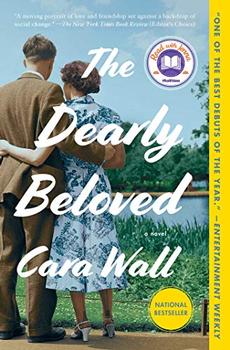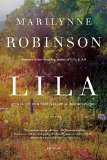Summary | Excerpt | Reading Guide | Reviews | Beyond the book | Read-Alikes | Genres & Themes | Author Bio

Charles is the devout son of a Harvard academic who decides during his own years at the Ivy League school that he has a calling to the ministry. While at Harvard he meets Lily, whose skepticism about God's existence doesn't deter him from asking her to be his wife. University of Chicago student James also meets his future spouse, Nan, while in college. He embarks on a career as a minister not because he believes in God but because he wants to improve others' lives through service; he is also eager to please Nan's father, who is a pastor. The two couples are thrown together in 1963 at the Third Presbyterian Church in New York City when the church advertises a vacancy, seeking a minister with "a certain dignity and intellect" who can imbue the congregation with a "certain call to action, a certain spark." Finding that Charles has the first set of characteristics while James has the second, the church decides to hire both men, and as a result the four leads find their lives inextricably linked.
In this well-crafted debut novel, author Cara Wall takes great pains with her protagonists, creating rich characters whose backgrounds and experiences are vivid and realistic. She traces their lives from childhood, and as each one reaches adulthood, we know exactly how their upbringings have shaped them into the people they've become. Also true-to-life is how their relationships with one another change over the decades, as they're cast into situations that cause friction or generate healing, sometimes between couples, sometimes across them. Readers come to appreciate how each of the four understands God, and how their beliefs have evolved over the course of their lives. The author's detailed portraits of her subjects are indisputably a highlight of the novel.
Also exceptional is Wall's multifaceted observation of life from many viewpoints; she grants her characters the insight to recognize the flaws in those they love as well as those in themselves. James' father, for example, returned from WWII an unemployable alcoholic, and in the family's southside Chicago neighborhood, the protagonist understands, his dad was far from an anomaly:
James and his brothers and the other boys knew every one of the ways they were different from their fathers. They were taller or stockier or better at baseball; they were better at math, had a head for finance, didn't hit their girlfriends. They carried those traits like lucky pennies in their pockets, hoping these were the charms that would make them different from their fathers forever.
In another passage, soldiers returning from the Korean War join Charles' classroom at Harvard. Wall expertly renders the intense discomfort he and his peers feel, ashamed that they had chosen student deferment and allowed these men to fight the nation's battles alone.
The heart of novel, though, is certainly the way the author explores the role faith in God plays in each of the four lives. Many novelists would be tempted, I think, to sway their audience toward one belief or another, but not so Wall; her writing is full of depth and free of bias. Her candid exploration of faith (or lack thereof) is thought provoking and nuanced, never coming across as off-putting, clinical or preachy. Especially impressive is how she treats the opinions of non-believing Lily as being as valid as those of devout Nan.
I enjoyed the book's first half immensely, but found my attention wandering as James and Charles advanced their careers at Third Presbyterian. They each had predictable crises they helped each other overcome, as did their wives. The protagonists' discussions about their maturing faiths were interesting but a little too long and frequent; they slowed down the the story, without adding much to our understanding of the characters. In lieu of those conversations, I would have preferred knowing more about the couples' later years. As it is, the book ends just a few years after the men's appointment, with the last decades of their lives condensed into a brief epilogue.
In spite of minor pacing issues, The Dearly Beloved is an engaging novel that gives pause, prompting one to think about the issues it presents rather than just reading solely for pleasure. Wall's writing is stellar, as is her character development. The debut is recommended for those interested in issues of faith, especially for readers seeking multiple perspectives on the question. Book groups in particular will find this one well worth their time.
![]() This review was originally published in The BookBrowse Review in August 2019, and has been updated for the
June 2020 edition.
Click here to go to this issue.
This review was originally published in The BookBrowse Review in August 2019, and has been updated for the
June 2020 edition.
Click here to go to this issue.

If you liked The Dearly Beloved, try these:

by S.M. Hulse
Published 2016
A former prison guard and talented fiddler returns to his Montana hometown to bury his wife and confront the inmate who, twenty years ago, held him hostage during a prison riot.

by Marilynne Robinson
Published 2015
Marilynne Robinson, one of the greatest novelists of our time, returns to the town of Gilead in an unforgettable story of a girlhood lived on the fringes of society in fear, awe, and wonder.
Your guide toexceptional books
BookBrowse seeks out and recommends the best in contemporary fiction and nonfiction—books that not only engage and entertain but also deepen our understanding of ourselves and the world around us.